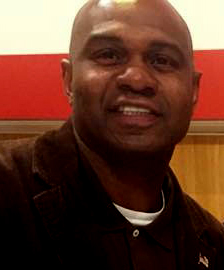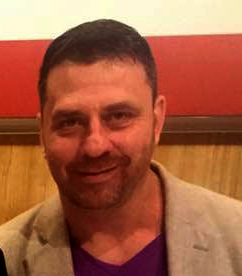About America Helping Veterans
Founded in 2013 by David "DOC" Bullock, Chief Executive Officer. David came back from combat and like many veterans before him had a seriously tough time adjusting back to civilian life. He spent 2 years dealing with depression, anger and thoughts of suicide. David also found himself in trouble with the law, drinking, and out of control like so many other veterans that make it back from war but have a hard time dealing with all the scars of combat. This is why he formed this Non-Profit organization, to help veterans deal with the transition back to getting and becoming a productive member of society.America Helping Veterans (AHV) is the first largest organization for ALL veterans and their families, with nearly 200,000 supporters nationwide.
Chief Executive Officer David Bullock served 22 years in today's modern Army and has held every enlisted postion from Private toSergeant Major. He received a Bronze Star for his action in combat and a Humanitarian Award for his selfless service to help others. David is a true American Hero and his passion for helping our veterans is unlimited. He has a B.A. in Communication and a Minor in Business as well as a strong love for DUTY, HONOR and our COUNTRY!
|
 Vice President of Operations Todd Weger joined the Army in 1988 strait out of High school. After basic training and airborne school, he was assigned to the decorated and historic 82nd Airborne Division, upon which he went to combat twice in the first year he was in the Army first was operation Just Cause in Panama,, then second he was on one of the first aircraft that landed in Saudi Arabia where his unit made up "THE LINE IN THE SAND" in the opening days of Operation Desert Shield- desert Storm!! Upon returning from combat Sgt Weger attended The US Army Ranger school, where he successfully earned the coveted Ranger tab! After completion of his service SSG still had a love and drive to help other veterans and brothers and sisters, that may need a hand up not a hand out! Then through a chance meeting with David "Doc" Bullock, SSG Weger was introduced to America Helping Veterans, and found a new driving force for his life: Helping other veterans, when they need a hand up! Vice President of Operations Todd Weger joined the Army in 1988 strait out of High school. After basic training and airborne school, he was assigned to the decorated and historic 82nd Airborne Division, upon which he went to combat twice in the first year he was in the Army first was operation Just Cause in Panama,, then second he was on one of the first aircraft that landed in Saudi Arabia where his unit made up "THE LINE IN THE SAND" in the opening days of Operation Desert Shield- desert Storm!! Upon returning from combat Sgt Weger attended The US Army Ranger school, where he successfully earned the coveted Ranger tab! After completion of his service SSG still had a love and drive to help other veterans and brothers and sisters, that may need a hand up not a hand out! Then through a chance meeting with David "Doc" Bullock, SSG Weger was introduced to America Helping Veterans, and found a new driving force for his life: Helping other veterans, when they need a hand up!
|
Non-Profit Organization
AHV is the 21st century veterans' organization dedicated to helping and assisting over 1.5 million veterans of Iraq, Afghanistan and their families from the first day they hit American soil through the rest of their lives. AHV is a 501(c)(19) tax-exempt Non-Profit Organization approved by the Internal Revenue Service (IRS). U.S. taxpayers' donations to AHV are tax-deductible which means we are able to apply for grants and other forms of support only available to tax-exempt organizations.
|
Statistics
While in the Army's active-duty ranks, suicides have tripled from 52 soldiers in 2001 to 185 last year. Roughly half of active-duty troops who die by suicide never served in Iraq or Afghanistan. But there is growing evidence that war trauma weighs heavily on those who did. In one indication of deep emotional stress, the suicide rate among U.S. troops deployed to Iraq between 2004 and 2007, a period of intensified fighting, jumped from 13.5 to 24.8 per 100,000, according to a report issued in 2009 by the Army surgeon general. |
The Problem
For the soldiers who served and who are still serving deployments are long and often frequent. A time that soldiers dream of and look forward to while downrange is coming home, however, the reality of coming home is often different than what they had idealized in their heads. People change during a deployment. The spouses left behind have learned how to manage on their own, leaving the soldier feeling unneeded upon arrival home. Young children view the deployed parent as a stranger, while older children may be shy or resentful.
The soldier returning home may be angry, tense, nervous, or traumatized from events downrange. Throughout history, soldiers returning from combat have experienced difficulty re-establishing relationships with family, despite the best efforts of the military to prepare them. Their families concern and understanding, though well intentioned, is usually not enough. The distance caused by the time away and the soldier's inability to leave the trauma and mindset of combat behind them can make the return home from combat stressful and difficult for both the soldier and family. |